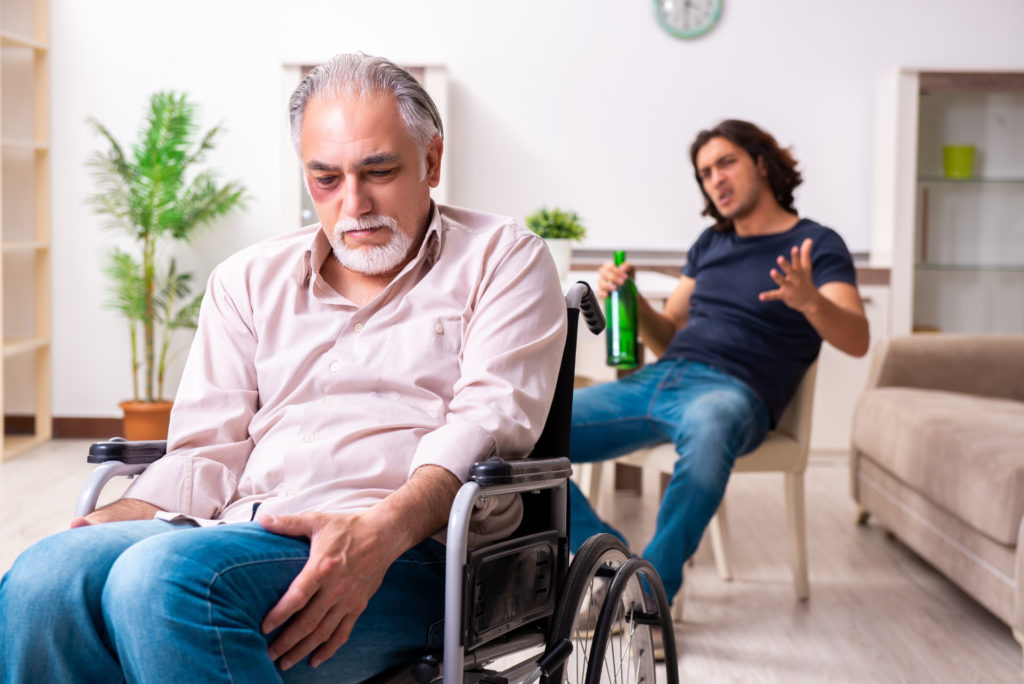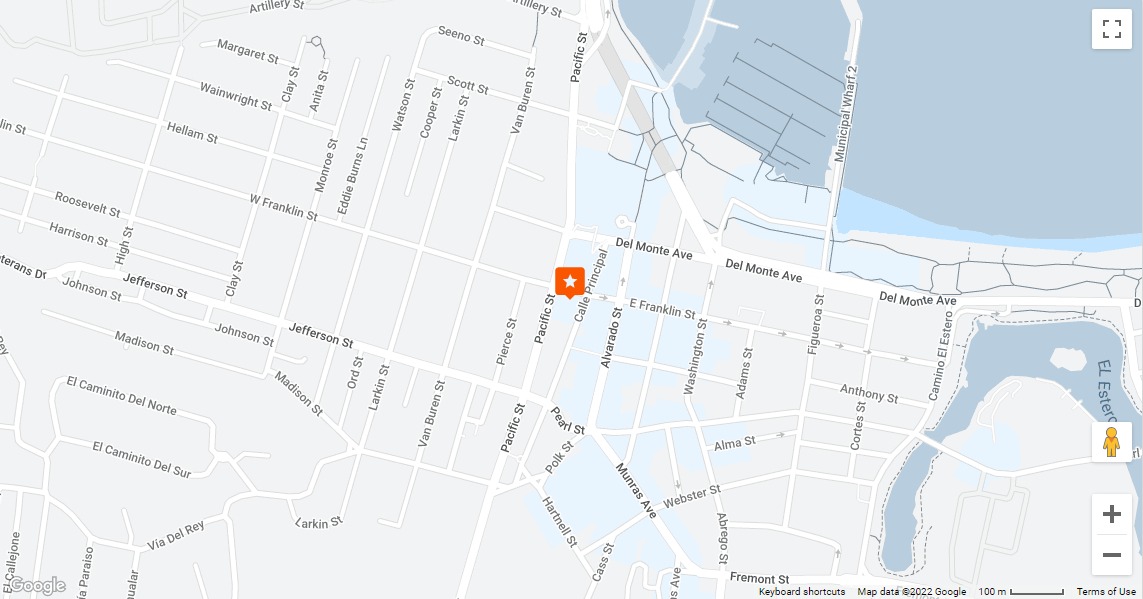Elder Abuse and Neglect

We often entrust the care of our older friends and relatives to “specialists”. Elder people and seniors often live in nursing homes, or with skilled caregivers. Unfortunately, a significant number of caregivers, and nursing homes abuse those they are there to care for. This abuse can come in the form of financial elder abuse, where people steal money, physical abuse and/or neglect, and even false imprisonment.
How can I spot elder abuse?
If you’re a friend or relative of someone in the care of others, such as someone in a nursing home, or with assisted living, pay attention to how that person is being treated. It helps to know what to look for. In particular, look for the following:
- Physical abuse: physical abuse can take many forms. It is often hallmarked by unexplained bruises and cuts. The black eye, or bruised cheek is most often associated with abuse. But, bruises on the arms and legs can be evidence of defensive wounds, rough handling, restraint, or pinning the person down.
- Neglect: neglect can become abuse if it can, or does result in serious harm. For example, if the elderly person needs help eating, but does not get help eating, they can become malnourished. Or, if the person needs help moving in their bed, but they do not get that, they can develop bed sores, which can become infected, quickly leading to death.
- False imprisonment: false imprisonment occurs when the nursing home staff, or caregiver, won’t let the resident or patient leave a particular area. So, for example, they are required to stay in their room. It can be accomplished by taking away wheelchairs, walkers, crutches, canes, or other tools used to help them walk. It can also be accomplished by threatening to deprive them of food, or water, or seeing friends and family.
- Financial abuse: financial abuse occurs when a caregiver, or a member of a nursing home, steals money from a safe, or bank account. But, it can also occur when a member of a nursing home, or a caregiver, pressures the person to change a will, or a trust, or pressures the person into investing into say a brother-in-law’s “startup”.
There are certain red flags to look for:
- Staff or caregivers, not letting you spend time alone with the elderly person;
- The elderly person has become frequently argumentative, or uncooperative, or has a sudden change in personality;
- Sudden weight loss, dehydration and/or malnutrition, which can signify malnourishment;
- Bruising, bedsores, marks from restraints, broken bones, and injuries from falls, which can signify physical abuse;
- Overmedication, oversedation, or undermedication, which can signify trying to subdue the person, or stealing medication;
- Genital bleeding and/or bruising, torn or bloodied undergarments, contraction of sexually transmitted diseases, or new medication used to treat sexually transmitted diseases like Azithromycin, Doxycycline, Erythromycin, Lindane shampoo (for crabs), Ceftriaxone, Acyclovir, Famvir, Valtrex, Zovirax, AZT, Benzathine penicillin, Diflucan, or Clindamycin cream;
- Excessive fear, or apprehension, blaming themselves for insignificant problems, frequent visible depression and anger, rocking, sucking, or mumbling (commonly referred to as “false dementia”), which can all be signs of verbal abuse; and
- Signs of financial abuse like recent, frequent withdrawals from bank accounts, losses of personal property, new loans or mortgage contracts, and recent revisions to wills, trusts, or investments.
What steps can I take if I suspect elder abuse?
If you suspect elder abuse:
- Verify the elderly person’s story, or verify the abuse. If you can confirm with the elderly person, and maybe other residents, that will go a long way. Gather medical records, or take photos of the recent injuries or prescriptions. If you can install a hidden nanny camera, do that too (be careful though since California law prohibits unauthorized recordings-one way is to notify persons at the front door that they might be under surveillance on the property).
- Consider removing the elderly person from the facility, or hiring another caregiver. If you are seriously concerned about the safety of a nursing home resident, or someone under the care of another, remove them from the unsafe condition immediately.
- Inform the authorities. In California, you are required to report elder abuse when you learn it has occurred. If the district attorney determines the abuse rises to the level of a crime, they will file charges.
- File a complaint with the appropriate agencies. You can find more about reporting abuse at https://www.medicare.gov/what-medicare-covers/what-part-a-covers/reporting-resolving-nursing-home-problems.
- Consider hiring an attorney. Civil attorneys, who practice nursing home law, elder abuse, personal injury, or consumer fraud, may be able to help the elder person, and maybe even you, recover damages as a result of the abuse. An attorney can also help advise you on how to report the elder abuse.
After that, seniors and their relatives can bring several types of claims against nursing homes (and often private caregivers and their agencies) including physical abuse, sexual abuse, verbal abuse, false imprisonment, consumer fraud, and financial exploitation. Elders can also file suit for neglect. Generally, those who care for elders, whether they are nursing homes, or private care providers, are held to a high standard of care. Failing to meet that standard of care leaves them liable for damages.
There are strict deadlines to report abuse and make abuse claims. The exact deadlines vary from case to case. It’s usually best to have an attorney advise you on those deadlines.
We have significant experience with elder abuse cases. We offer a free, confidential, case evaluation below. The case evaluation goes directly to top elder abuse attorney John McCarthy’s inbox. Attorney McCarthy reviews and responds to every inquiry, by close of the next business day. If we think we’re in a position to help, we will reach out to schedule a free consultation. If we don’t think we’re in a position to help, we’ll provide you resources to help you understand the law, find a lawyer who might be in a better position to represent you, and even take some steps to help yourself. We take cases on a contingency fee basis meaning you only owe us fees if we recover for you. If you, or a loved one are experiencing elder abuse, you need to act fast to ensure protection. Why wait?
OUR FAST, FREE, CONFIDENTIAL, CASE-EVALUATION FORM IS DESIGNED SO YOU CAN TELL YOUR STORY, DIRECTLY TO JOHN
START AN EVALUATIONYour responses will go straight to John’s inbox. John will review and respond by the end of the business day. If John thinks he can help, he’ll email you a link to schedule a free consultation with him. If John doesn’t think he can help, he’ll email you resources to help you understand the law, find a qualified lawyer to help you, and take steps to protect your rights. No waiting around.


